#ethereal gothic
Text
"Song of Dispossessed" by Buenos Aires, Argentina-based dark gazey post-punk act Perlas Tus Ojos, featured on 2017 Argentine compilation Pura Melomanía by Argentine alternative label Revista the 13th
#ethereal wave#ethereal post punk#gothgaze#ethereal gothic#Perlas tus Ojos#Song of Dispossessed#compilation#music#female singer#Argentine#South American#2017#Pura Melomanía#Revisita the 13th#Buenos Aires Argentina#Bandcamp
5 notes
·
View notes
Photo
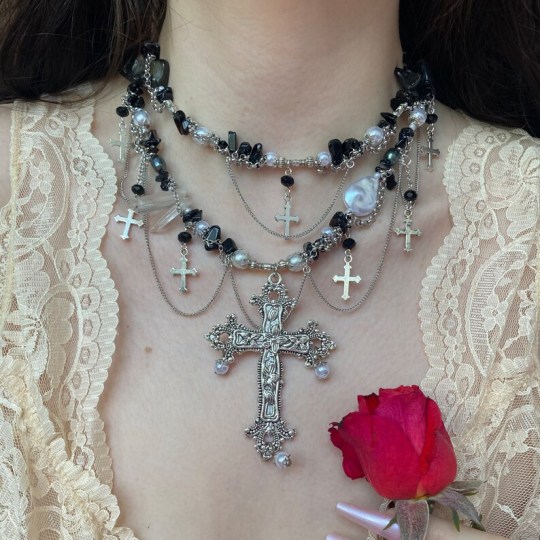
Ethereal gothic fairy necklace - black banded agate // ActualAngel
9 notes
·
View notes
Text
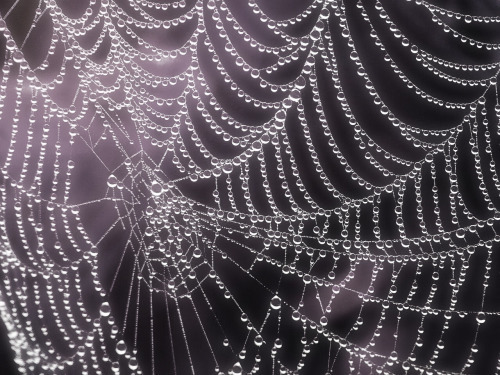
#spider web#spider webs#spiders#web#webs#goth#gothic#spooky#ethereal#spooky aesthetic#goth aesthetic#gothic aesthetic#etherealcore#fairycore#༺♡༻
3K notes
·
View notes
Text
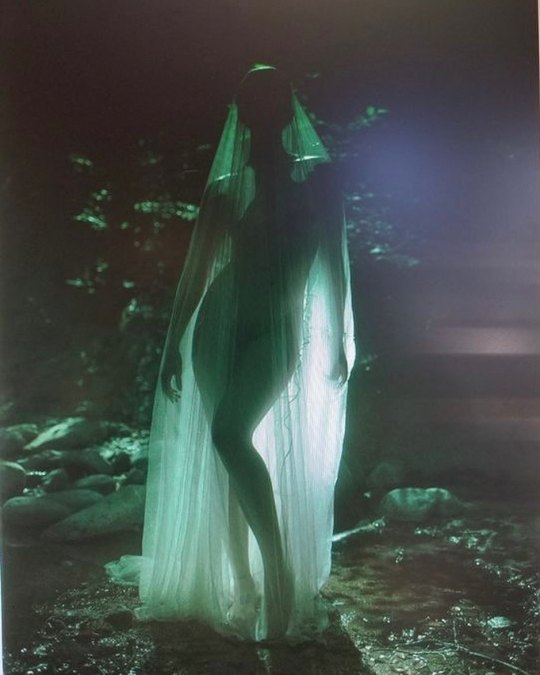
3K notes
·
View notes
Text
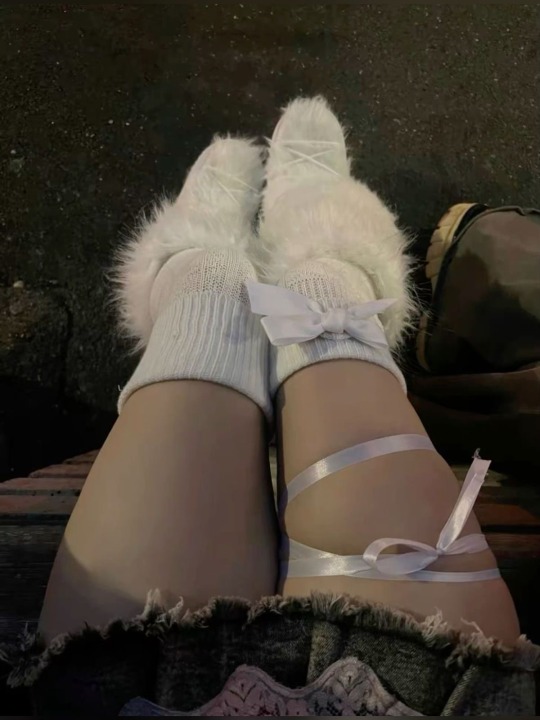
#etheral#goth#grunge#dark grunge#dark coquette#gothic#etherals#dark wave#goth punk#3therals#cybercore#soft aesthetic#lana coded#coquette#fur#ribbon
2K notes
·
View notes
Text

Dead cold autumn
#american gothic#rural#rural gothic#rural america#southern gothic#small town america#ethel cain#photographers on tumblr#photocinematica#ethereal#into the ether
2K notes
·
View notes
Text

home
1K notes
·
View notes
Text

.‧₊ ✧̣̇⋆.
3K notes
·
View notes
Text



#southern goth aesthetic#appalachian gothic#appalachain mountains#southern gothic#southern style#photo edit#nostaligiacore#manic pixie dream girl#pnw#photografy#occultism#occult#american gothic#teenage dirtbag#trashy 2000s#early 2000s kids#early 2000s#ethereality#you tasted love and it tasted sweet#pure nostalgia#nostalgia#pinterest dump#dirtbag boyband#dirtbag#americano#angst#rural gothic#rural america
3K notes
·
View notes
Text
Following the ghosts

#gothic#goth#american gothic#dark aesthetic#creepy cute#goth aesthetic#haunted#creepy#southern goth aesthetic#ominous#ethereal
810 notes
·
View notes
Text

and we’re all gonna die, decompose into daffodils and dandelions… 🐝
#cottagecore#cottage#cottage aesthetic#cottage vibes#cozy cottage#grandmacore#cozy aesthetic#cozyvibes#gothic#gothcore#dark acadamia aesthetic#dark academia#ethereal
763 notes
·
View notes
Text
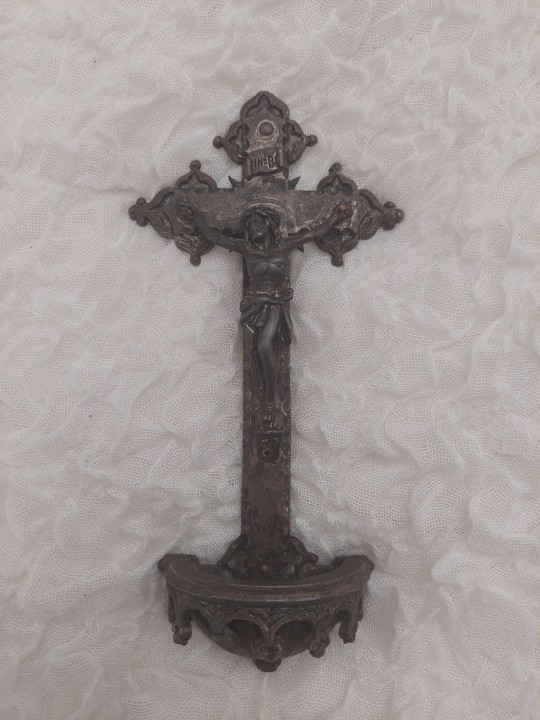
Late 19th century stoup, so enchantingly beautiful yet i still don't know where to hang it.
#antique#vintage#historical#edwardian#victorian#19th century#1800s#late 1800s#aesthetic#angelcore#angelic#gothic#dark coquette#lana del rey#ethel cain#ethereal
599 notes
·
View notes
Text
Goth 101
🦇 tl;dr version for those who prefer that format
Goth is a music-based subculture that started out in the UK in the late 70s/early 80s and spread internationally from there. It spawned from the UK Punk scene, keeping the DIY ethics but turning the music more melancholic, introspective and experimental.
The music genres that the subculture was built around are (dark) Post-Punk, Gothic Rock, Darkwave, Ethereal Wave and a few other smaller subgenres.
While the fashion and other non-musical aesthetics are very prominent and beloved by goths, they're non-essential to the subculture. What defines a goth is the music we listen to.
Our "big 4" bands are The Cure, Sisters of Mercy, Bauhaus and the Banshees. However, 3 out of 4 of those bands are Post-Punk acts (Sisters of Mercy being the exception Gothic Rock band), and while very influential to the rest of the goth music scene, they by no means are the end-all, be-all of what goth music sounds like. The genre has evolved through its over 40 years of existence, creating diverse sounds. Anyone darkly inclined can find something to love, even if it takes a bit of research.
The Dark & Gothic playlist on Spotify is a pretty decent way to get started into goth music. In my old blog I had entire tags dedicated to goth music as a whole, and separately to Post-Punk, Gothic Rock, Darkwave and Ethereal Wave too. I had a few playlists based on popular goth aesthetics here.
The longer description of goth music will include playlists for each bigger goth subgenre, but please keep in mind they're made by me in a way that appeals to my personal tastes for each subgenre. I don't know every band that exists and my personal taste is biased towards the 90s.
Now, to a more detailed introduction to the goth subculture...
🦇 Dark alternative vs Goth
What a lot of people need clarified is that the goth subculture doesn't have a monopoly on the dark alternative world, nor are we the home for everyone sad, spooky and weird who doesn't fit in and might listen to any sort of sad, spooky or weird alternative music.
There are SO many dark alternative music scenes that have nothing or very little to do with the goth subculture. We've influenced a lot of them fashion-wise, but just because they copied us we look alike doesn't mean we're interchangeable.
There's no scale that goes from Prep to Goth and measures how Valid™ your inner darkness is, in which if you're anything below goth then you're a poser and lame. It's perfectly fine and cool to be dark alternative without being a goth. Goth isn't a badge of legitimacy or honor, it's just one specific flavor of dark alternative among so many.
Goth is a very small and obscure subculture despite our superficial hypervisbility (our looks and infamy are hypervisible, what we're actually about is extremely buried underground), and most dark alternative people aren't goths.
🦇 What does it take to be a goth?
There's one rule, and one rule only: LISTEN TO THE MUSIC. You wouldn't call yourself a metalhead without being a fan of Metal music, would you? The same principle applies to goth.
There are many types of alternative subcultures; some examples are fashion-based subcultures, another are lifestyle-based subcultures. A third type of subculture that's very prominent (especially in the West) are music-based subcultures.
Goth is a music-based subculture, just like the metalhead, punk, emo, rivethead/Industrial, hip-hop, rave, K-Pop and grunge subcultures are.
This means that, while the music isn't THE ONLY aspect the subculture has, in order to be a goth you have to listen to goth music, and we have a specific set of music genres that our subculture was built around, so not just anything dark and melancholy will do, as we don't have a monopoly on that, but we do have something closer to a monopoly on a specific sound and musical legacy.
You don't have to listen to goth music EXCLUSIVELY to be a goth, that'd be insane. You don't even have to limit yourself to dark alternative music either. You just have to listen to goth music to a relevant degree and be passionate about it and you're in, the rest is up to you.
This means too that the way you dress has no impact on your validity as a goth, whether you don't have the gothic wardrobe of your dreams yet or you just don't want to dress goth at all. I'm TikTok mutuals with a girl who dresses exclusively in pink-white sweet lolita coords, but who's passionate about goth music. She's a goth, no questions about it. On the other hand, a lot of the influencers you'll see online who look like a lost Addams cousin aren't goths at all, and no house decor or outfit will make them gothier if they don't listen to the music.
🦇 What music counts as goth?
From the previous points I made you probably gathered that Industrial and Metal – both genres that outsiders usually associate with the goth subculture – aren't actually part of the goth genre. So, what is goth music?
Goth music developed initially in the UK in the late 70s/early 80s off of dark Post-Punk. Post-Punk itself developed from UK 70s Punk Rock, being also influenced by Glam Rock, experimental electronic music, and many other influences more specific to each band that took part in this musical development (Bauhaus were very influenced by Reggae!).
What characterizes the goth sound are elements such as; being bass-driven rather than guitar-driven (in almost every case), guitars playing more of a decorative or atmospheric role instead of being the main focus (which contrasts starkly against genres such as Metal), preference for voices with a lower vocal range (altos, this is your genre to shine in!), optional use of synthesizers, recurrent replacing of human drummers with drum machines, and common use of lots of reverb and delay effects everywhere for an extra sensation that you're listening to music recorded in a catacomb.
Dark Post-Punk was the starting point of the goth subculture, and from it, all other goth music subgenres developed. Depending on who you ask there's a billion goth micro-genres. In my opinion a lot of those subgenres are rather meaningless (a lot of them are just specific flavors of Post-Punk or Darkwave) but the main 4 subgenres of goth music are:
(Dark) Post-Punk
Gothic Rock
Darkwave
Ethereal Wave
POST-PUNK:
Post-Punk took the standard sound of Punk Rock and its DIY ethics and made the sound more melancholic, romantic, experimental, less angry, and more introspective. Dark Post-Punk in particular was influenced by gothic literature and old horror movies (including their soundtracks, the Banshees created their characteristic guitar sound after the violins in the Psycho soundtrack).
Besides the 3 Post-Punk bands I listed as part of the goth "big 4", there's bands such as Skeletal Family, Twin Tribes, Specimen, She Wants Revenge, Sex Gang Children, Xmal Deutschland, Lebanon Hanover, Cruex Lies, The Secret French Postcards and The Birthday Party.
GOTHIC ROCK:
When goth became slightly more established in sound, Gothic Rock is what happened. Less experimental than Post-Punk, a bit more Rock-based, more decidedly dark and miserable than Post-Punk necessarily is, and finally severed from goth's punk roots. Sisters of Mercy is THE most popular and influential Gothic Rock band; they popularized the use of extremely low baritone vocals and drum machines. Despite existing since the 80s, its popularity peak was in the 90s.
Goth as a whole has its "big 4", but the subgenre of Gothic Rock has its own "big 3", which are Sisters of Mercy, The Mission (UK), and Fields of the Nephilim. Other Gothic Rock bands are Rosetta Stone, Corpus Delicti, Inkubus Sukkubus, Mephisto Walz, Angels of Liberty, Two Witches, Nosferatu, Wisborg and Soror Dolorosa.
DARKWAVE:
Goth going electronic! There's basically two types of Darkwave; the one that's more a combination of Post-Punk + Synthpop (very popular in the past decade), and the one that's more a combination of Gothic Rock + electronic music in general (most popular in the 90s). EXTREMELY danceable, but then again goths can dance to literally anything. This genre has existed at the very least since the second half of the 80s and has never stopped being relevant in the goth scene, save maybe during the Deathrock revival phase.
Clan of Xymox might be the single most influential Darkwave band. There's also The Frozen Autumn, The Crüxshadows, Switchblade Symphony, Collide, Dark, Ghosting, London After Midnight, She Past Away, Drab Majesty and Boy Harsher.
ETHEREAL WAVE:
This genre is heavily linked to Dream Pop, Neoclassical Darkwave and Shoegaze. Like with Darkwave there's basically a few styles of Ethereal Wave, I can pinpoint three; the one that's like, regular Goth Rock/Post-Punk but with a lot of extra delay and reverb and other stylistic choices that make it sound, well, Ethereal, dream-like. There's the type that has lots of Folk influences (be it Medieval/Rennaisance-ish type of Folk or "ethnic" type of Folk), and there's one that's synth-based but, unlike Darkwave, sounds like what ketamine must feel like. This genre has existed since the mid 80s but its peak in popularity and relevancy in the scene was in the 90s.
Dead Can Dance is THE most influential Ethereal Wave band, but there's others such as Cocteau Twins (started as Post-Punk, ended up as Dream Pop and Ethereal Wave), Miranda Sex Garden, Faith and the Muse, Lycia, Claire Voyant, Hamsas XIII, Love is Colder than Death, SRSQ, Black Tape for a Blue Girl and Mors Syphilitica.
What about Deathrock, Gothic Metal and Industrial?
Deathrock is goth's American twin, basically. While in the early 80s in the UK morose ex-punks were playing Post-Punk, in the early 80s in the LA Punk scene morbid and brooding punk kids were playing Deathrock; it's closer to Punk Rock in sound than Post-Punk, being more about being spooky and brooding than about being eerie and romantic. Goth is to vampires and witches what Deathrock is to zombies and werewolves.
To summarize the consensus on Deathrock and its place within the goth subculture; it's rare to find a goth who's not also into at least some Deathrock, and even rarer to find a deathrocker who's not into goth. Personally, I think Deathrock is its own separate though very similar thing, but I don't mind Deathrock being lumped in with goth music.
I made a whole TikTok video on why Gothic Metal isn't a goth subgenre, but in summary; Gothic Metal is a Metal subgenre that was somewhat influenced by goth music in its earliest stage of development, but is for the most part a cross between Doom Metal and Death Metal with lyrics inspired by gothic literature. By adhering to a Metal sound it doesn't fit the type of sound goth music has. The goth influences in Gothic Metal were mostly only present in the earliest bands and a majority of the newer acts are completely disconnected from the goth scene.
As for goth's ties to the rivethead subculture (and thus, Industrial music): We've been sibling subcultures since at least the early 90s. Both very, very small and underground scenes that despite being different, had enough similarities in music, idiosyncrasy and aesthetic sensibilities to comfortably band together for the sake of scene viability. That's why you might hear people talking about the "gothic-industrial scene".
Keep in mind too that 80s and 90s Industrial music sounded very different from how it does now (compare your average Grendel or Combichrist song to your average Skinny Puppy or Die Form song). There was a lot less influence of raver music in the rivethead scene back then, and a lot more influence from 80s dark alternative music and New Wave, which are key influences for the goth scene as well.
As told by goth YouTuber Angela Benedict (goth since 1995), every goth back then listened to at least some Industrial, every rivethead listened to at least some goth music, and they all loved 80s New Wave, so DJs at shared club nights had a very easy time entertaining both audiences simultaneously.
🦇 Trivia & other things to know
The term "gothic Rock" was being used in music journalism as early as to describe releases by The Doors and The Velvet Underground, but the word "gothic" there wasn't so much used to point to a specific type of sound at that stage, it was used to imply the mood of the music and that's not where the subculture gets its name.
We don't know for sure why this subculture began to be referred to as "goth", initially the music was called either New Wave (just a darker and more underground variety of it) or Positive Punk. However, one of the potential roots of this name for our subculture is that it comes from an inside joke from members of Southern Death Cult/The Cult about Andi Sexgang (Sex Gang Children) about how he was a creepy little guy obsessed with the macabre and dark romanticism living at the Visigoth Towers, so they called him a "goth goblin" and if he was a goth, then his fans were goths too.
From the comments that the goth bloggers/vloggers I follow get, apparently it's common for baby bats and people interested in the subculture to think that they HAVE to find a goth "type" to lock themselves into, like "trad goth" or "romantic goth" or whatever else, and if they don't, they're a poser. This isn't true at all. Most goths wax and wane between fashion styles and goth music subgenres. These terms are far more useful to describe aesthetics rather than people or music.
If you ever hear people talk about "1st/2nd/3rd wave goth/Gothic Rock"; that's an (in my opinion) outdated and not too functional terminology to differentiate between "eras" of goth music, 1st wave being between 1975-1985, 2nd between 1985-1995, and 3rd between 1995-? That terminology was used widely when I was a baby bat but not so much anymore.
"Baby bat" is what a lot of more established goths call newbies! It's NOT meant as an insult nor to be condescending. It's a loving cutesy term and while of course most baby bats are very young, it's perfectly plausible to be a very grown adult and a baby bat if they just got into goth instead of getting into the subculture as a teen.
Most goth bands are easily found on Spotify except for more underground ones that haven't been active for a while (I have so many beloved bands and songs that just don't exist on Spotify), but the real goth jackpot is at Bandcamp.
Facebook is still useful for one (1) thing and it's for finding goth events; that's where I've found out about gothic fairs, goth nights and gigs; from the largely popular ones in my local scene to the very underground ones.
The song most of the subculture agrees is THE first official goth song is Bela Lugosi's Dead by Bauhaus, which was recorded as a singular take. It was the first track the band recorded together, too.
The Batcave is infamous nowadays as a huge goth night club in Soho (London) during the early 80s, owned by the band Specimen, BUT as told by the very people who used to frequent the nightclub, the whole thing has been a little overblown and its current reputation is more legend than fact. YouTuber Gothcast has a great video on the subject that was praised by members of Specimen itself!
youtube
Most of the most iconic pioneer goth musicians HATE being referred to as goths or to have their music referred to as such. When the term "goth" was first starting to be used to describe our music and scene it was a pejorative used by outsiders and/or mostly associated with the campier and more "low brow" bands (Specimen and Alien Sex Fiend come to mind). Andrew Eldritch from Sisters of Mercy especially hates it, to the point he refuses to even say the word and refers to it as "the G word". Which is hilarious since he sounded the most stereotypically gothy out of the big 4 and looked like this at the time he started to be a piss baby about it:
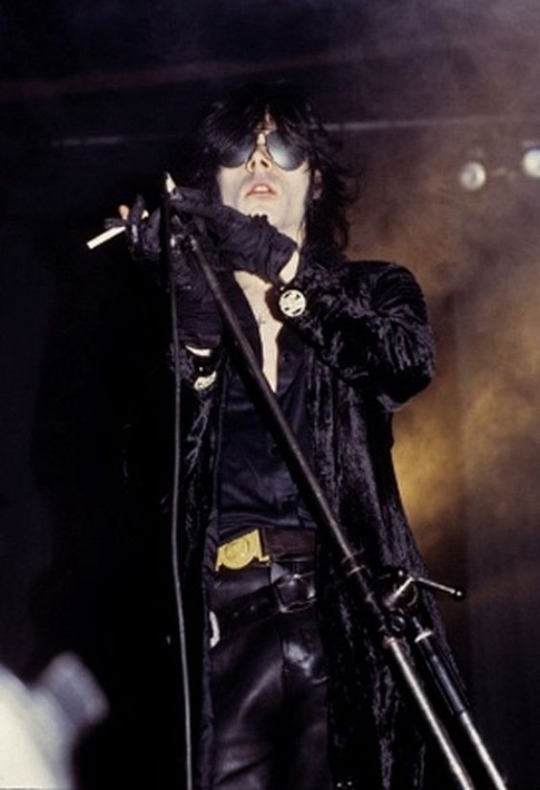
Goth isn't really a "youth" subculture anymore if you ask people within the scene. Unlike people from many other subcultures, goths have a tendency to stay goth far into adulthood (even if covertly). When you go to any events, besides teens and people in their early 20s, you're gonna see plenty of goths in their 40s and older, a few of them will bring their kids along if the event is family friendly.
Besides the obvious chance of many goths being professional creatives (musicians, writers, artists, etc), for some reason A LOT of goths work in tech and healthcare!
Metalheads headbang, they and punks also mosh. What do goths do to vibe to our music together? We dance! We don't dance the same as non-goths but we LOVE to dance to our music, together or solo. There's no established dance styles to adhere to; it's just letting your body flow to the music. Some goth dancing is very intricate, some of it is very simple, it depends on the goth in question. Just in case, this is NOT like the dance gifs of cybergoths/rivetheads under that damned bridge. Think less that and more Wednesday Addams dancing to The Cramps, or the girl from the Night of the Demons movie. Here's some videos about how goths dance:
youtube
youtube
youtube
We fucking love 80s New Wave. No, Depeche Mode isn't a goth band; yes, you'll have to dig deep to find a goth who doesn't ADORE them. The only one I've come across who disliked Depeche Mode liked Soft Cell instead.
Goth IS international! Not just in the sense that there's fans of goth music basically everywhere, but that there's local goth scenes with their own local goth bands everywhere. Outside of the US + Europe + Canada, there's huge goth scenes all over Latin América (our Deathrock and Post-Punk are at times even popular among 1st world goths), and there's also smaller but still present goth scenes in Africa, Asia and Oceania. She Past Away is very much one of THE most popular goth bands in recent years and they're from Turkey.
The goth scene has always been in friendly terms with the LGBT community. Not only are many of our biggest icons LGBT themselves (the whole band Specimen, AVC from Sopor Aeternus, both members of Diavol Strâin, the vocalist from Male Tears, Cinnamon Hadley, and many more) but plenty of cishet goths (especially the men) embrace gender non-conformity and/or androgyny. In most local scenes, goth club nights are held at gay bars/nightclubs, as they don't tend to have privately owned venues. And either way, at any goth night there'll be tons of gay and gender non-conforming goths no matter where they're held. To varying degrees depending on the locality of the scene, gay and bi people are completely normalized in the goth subculture, and gender non-conformity and androgyny aren't just encouraged, but praised and coveted.
There's goths of any religion you can think of, but Neo Pagans are somewhat over-represented in our community compared to the rest of larger society (for better or worse). Funnily enough, very few goths are actually Satanists of any sort. I'd say the numbers go more or less similar to our local non-goth peers. In the West and westernized countries I'd say it goes; majority culturally-Christian atheist or agnostic goths (usually not militant about it), a few practicing Christians of whichever denomination (usually whichever is dominant in the country they inhabit), the rare but entirely plausible Jewish, Muslim or Buddhist goth, and a bunch of Neo-Pagans. Probably one (1) or two (2) actual Satanist goths per state/province/etc, tops.
World Goth Day is celebrated every year on May 22nd.
"Mallgoth" isn't a type of goth in either a musical or fashion sense. I made another TikTok about it, but in summary; it was originally hurled as an insult towards a very specific type of poser; the American kids in the late 90s and early 00s who imitated how goths dressed and called themselves goths while only listening to Nu Metal and maybe the most mainstream Industrial Metal. They tended to congregate at malls and behave particularly obnoxious to everyone there, further ruining our already delicate image (especially at that time).
Cybergoths aren't really goths either. Their music scene is centered around EBM, which is basically slightly darker and slightly more aggressive raver music that may or may not have Industrial influences. And to be honest they behaved like a rapacious invasive species in goth club nights to the point that they almost decimated the actual goth scene and it took us a while to recover from that.
Goths are sometimes perceived as too self-serious but honestly? We love making fun of ourselves and we tend to have a very silly or dry sense of humor. We're just tired of the same cheap and inaccurate jokes made by people who don't know anything about us. The best jokes about goths will often come from goths ourselves; you can only properly make fun of something you understand well! The few times outsiders get it right though? (Sad to confirm that the South Park goth kids are hilarious and I wish they were in a better show) You'll see goths sharing the SHIT out of it, such as me being obsessed with the goths from Ridonculous Race, or the clip below:
youtube
#goth music#music#goth#gothic#gothgoth#goth subculture#trad goth#gothic rock#post punk#darkwave#ethereal wave#Spotify#goth 101
1K notes
·
View notes
Text
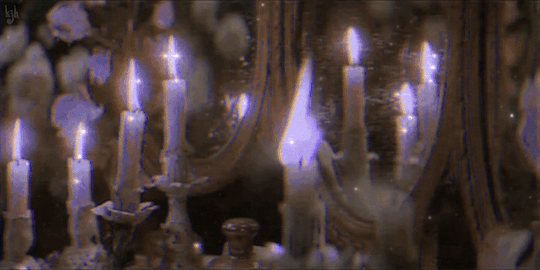
#my edits#candles#candles gif#candle gifs#goth#gothic#goth aesthetic#gothic aesthetic#ethereal#spooky#glitter gifs#glitter graphics#goth fantasy#vampire aesthetic#vampcore#gothic gifs#༺♡༻
3K notes
·
View notes
Text

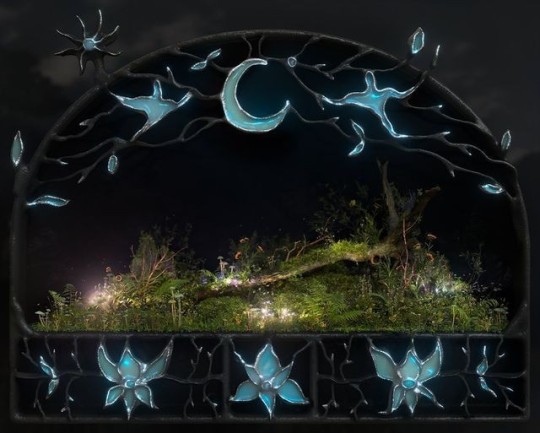
"midnight biome" by Ida Lissner

#whimsigoth#whimsigothic#whimsigothcore#ida lissner#midnight biome#dreamcore#ethereal#forestcore#oddcore#fairytalecore#dark fae#dark faerie#faecore#faerycore#gothic art#stained glass#mooncore
1K notes
·
View notes
